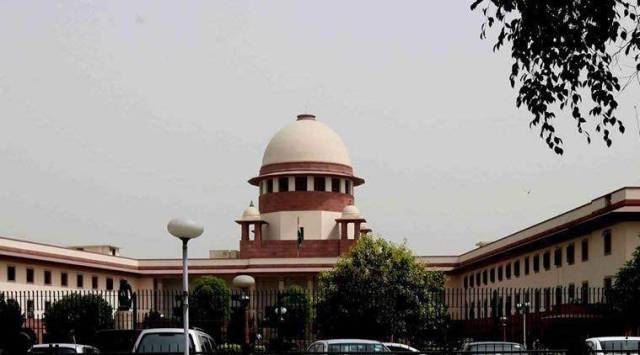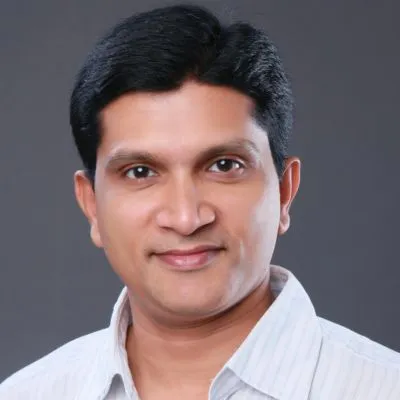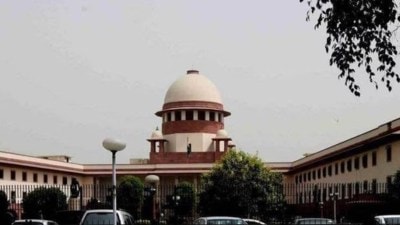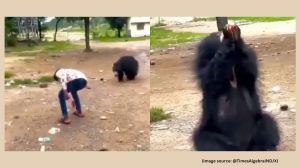The Centre on Monday told the Supreme Court that the Home Minister had told Parliament that the Union Territory status for Jammu and Kashmir is a temporary measure and that its statehood will be restored. “The Hon’ble Home Minister on the floor of the House has said that this (reorganisation in Union Territory) is a temporary measure.
Ultimately it will become a state,” Solicitor General Tushar Mehta, appearing for the Centre and J&K administration, told a five-judge Supreme Court bench headed by CJI D Y Chandrachud, which is hearing petitions challenging changes made to Article 370 of the Constitution by Parliament in 2019.

Mehta told the bench, also comprising Justices S K Kaul, Sanjeev Khanna, B R Gavai and Surya Kant, that there were “situations where it is necessary for sometime, this remains under Union as Union Territory”.
Story continues below this ad
Meanwhile, the SC, which was hearing arguments for the 11th day, observed that the now-scrapped Article 35A of the Constitution, which enabled the erstwhile state to define who is a permanent resident to grant them special rights and privileges, took away three fundamental rights, besides the power of judicial review.
The CJI said this as Mehta said the provision removed references to Scheduled Tribes from Article 15(4) of the Constitution. Mehta said, “So you alienate those who did not fall within the artificially created definition of permanent residents…and those who belonged to Scheduled Tribe.”
As Mehta referred critically to how many provisions were exempted from application to J&K, the CJI reminded him, “You are appearing for the Government of India. In Constitutional theory, the Government of India is a perpetual entity.”
The S-G said, “The Government of India has a right to say that this ought not to have been done and correct itself, which we did, and I am justifying that correction. I am not saying that government and this government. [It is] our government. The mistakes of the past should not befall on the future. That’s why what we did in those days I am justifying our undoing it in 2019.”
Story continues below this ad
Mehta said a separate category of permanent residents was created and any law which provides for this kind of special privileges would not be hit either by Article 14 or Article 19, or any part of the Constitution. “The impact was people from Pakistan-occupied Kashmir were driven out — both Hindus and Muslims,” he said. “They were driven out in 1947 during the raids. They were not permanent residents till 2019. There were a large number of safai karmacharis [sanitation workers]…brought from other states for manual work. They are not permanent residents and hence not getting any of these benefits.”
“Despite living for decades together, no person outside J&K can acquire property, meaning, thereby, no investment,” the S-G added.
Referring to the Constitution (Application) Order, 1954, the CJI pointed out that it applied the entirety of Part III (fundamental rights), including Article 16 and 19, to J&K. “Now, you bring in Article 35A which creates an exception under 3 areas: employment under state government, acquisition of immovable properties, and settlement in the state. Though Part III is applicable, when you introduce 35A, you take away 3 fundamental rights: Article 16(1), right to acquire immovable property which was then a fundamental right under 19(1)(f), A 31, & settlement in the state which was a fundamental right under 19(1)(e).”
The CJI said that although the Constitution “expressly made provisions of Article 19 applicable, which would include these three rights [[employment under state government, acquisition of immovable properties, and settlement in the state] and Art 16, by enacting 35A you virtually took away the fundamental rights…. The power of judicial review was taken away.”
Story continues below this ad
Mehta said this went on until 2019 and added that what is under challenge is the government’s Constitutional exercise of power which confers fundamental rights, applies the entire Constitution to the erstwhile state, and brings its people at par with the rest of the country.
Mehta said that until now, people were convinced by those who guide them that this isn’t a hindrance in their progress, but a privilege they fight for. He said at least two major political parties have defended 370, including 35A.
“Now people have realised what they had lost. Now…investments are coming. Now, because policing is with the Centre, tourism has started…16 lakh tourists have come,” he pointed out.
Mehta also said that until 2019, judges of J&K High Court used to subscribe to an oath which read “true allegiance to the Constitution of the State”. Although they were under an obligation to apply the Constitution of India, the oath they took was expressing their allegiance to J&K, he said.
Story continues below this ad
On the aspect of state reorganisation, the S-G said whenever there is a Presidential proclamation under Article 356, the proviso to Article 3 is suspended, and that is done to ensure that the power vests entirely with Parliament during the period
The CJI then asked, “You have referred to the fact that there is a Constitutional practice that during the operation of a Presidential proclamation under Article 356, the proviso to Article 3 has been suspended. And you have said it is obviated by the reason that if you don’t do so, and the legislature is only in a state of suspended animation and not dissolved, the legislature may conceivably meet to express its views…. But this Constitutional practice cannot obviate the legality of what is done.”
Mehta said even the legislature’s views are taken, the only difference being that Parliament acts also as the legislature. “So Parliament would then give views to itself and it would also enact the legislation for reorganisation,” the CJI asked. “Would that really be consistent with the federal doctrine?”
Mehta said he will show in his arguments that “it does not destroy federalism at all”.










